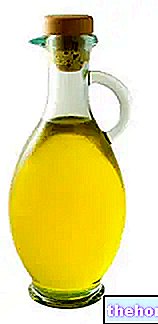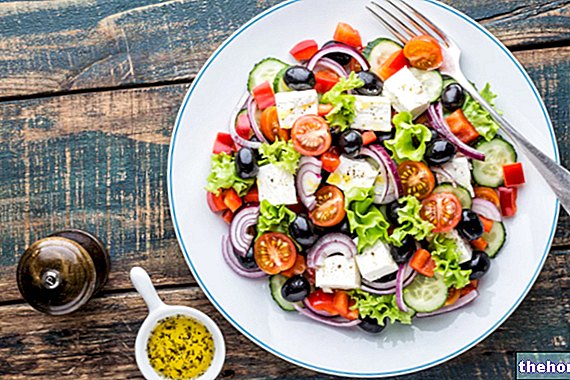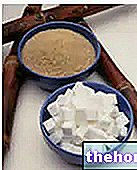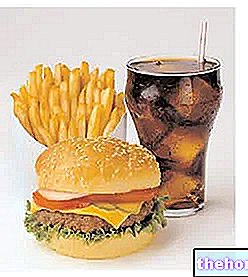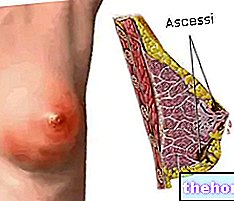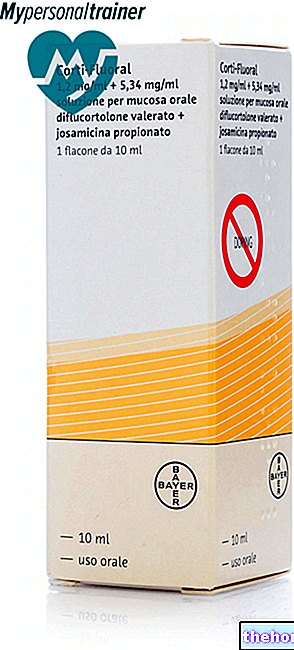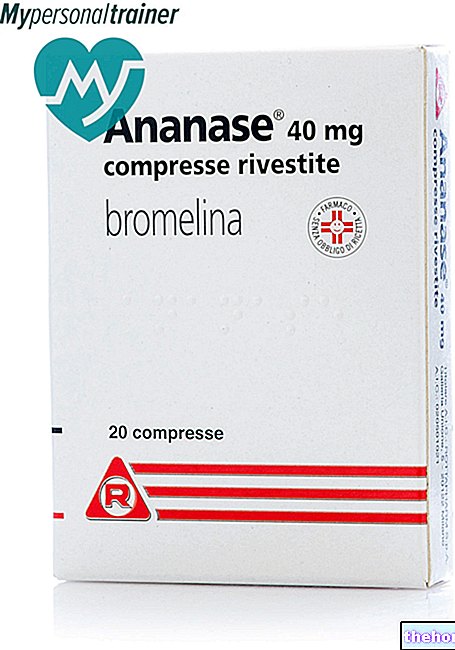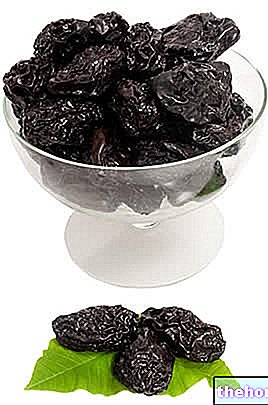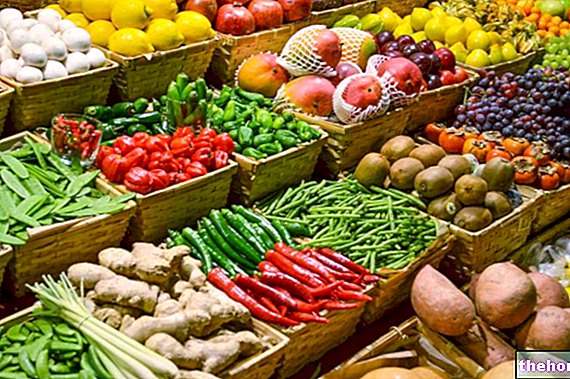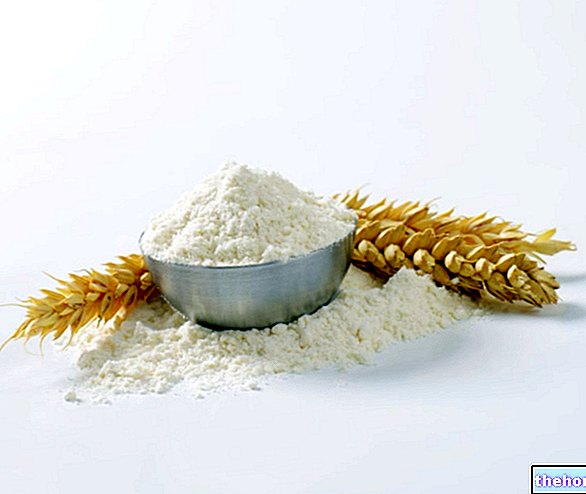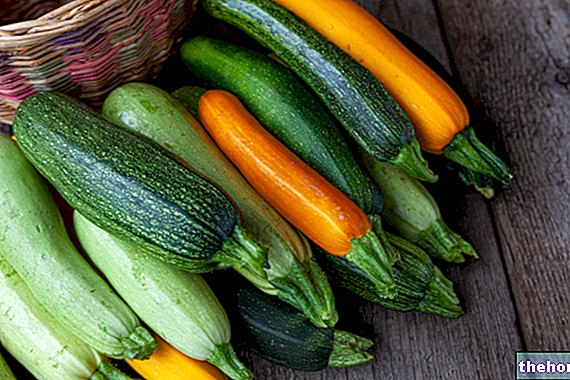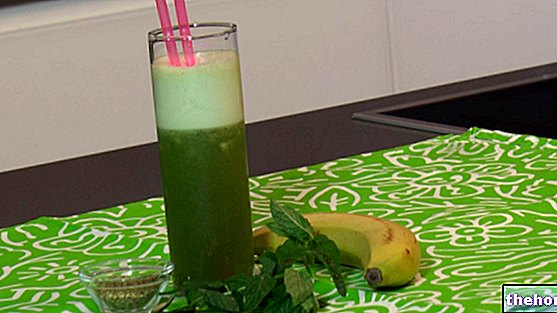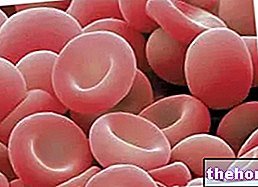Glycemic index of fructose
Potential Benefits of Fructose
The relationship between fructose and diabetes is a troubled relationship, which in recent times seems very close to a breaking point. We are in fact talking about a "strange" sugar, often recommended in the presence of diabetes due to its low glycemic index (19-23).

After its ingestion, in fact, the levels of glucose in the blood increase much less than what is recorded after the "intake" of a similar quantity of glucose (glycemic index 100) or sucrose (glycemic index 68); the same goes for insulin, which does not increase significantly.
Moreover, fructose has a higher sweetening power than sugar; this allows it to be used in smaller quantities to sweeten food. Finally, its calorific value is 3.75 KCal per gram, therefore slightly lower than that of sucrose (3.92 Kcal / g).
Disadvantages of Fructose
Why Diabetics Should Avoid Excess Fructose
The characteristics listed so far seem to celebrate a lucky and lasting marriage between fructose and diabetes. Unfortunately, however, analyzing the metabolism of this sugar we realize that at high dosages the ratio seriously tilts up to an almost definitive break. Data in hand, in fact, several studies show that HIGH intake of fructose (> 40-60 grams per day in addition to that already present in fruit and honey) lead to rather negative metabolic consequences:
- fructose has a capacity to form advanced glycation products (AGE) about seven times higher than that of glucose (excess sugars bind to certain groups of proteins, forming these advanced glycation products that damage tissues);
- fructose does not suppress ghrelin (a gastric hormone that stimulates appetite);
- chronic exposure to fructose favors the onset of the metabolic syndrome;
- a diet particularly rich in fructose increases insulin resistance; in fact, although this sugar does not directly increase insulin secretion, it does so indirectly, hindering the hepatic metabolism of glucose and its transformation into glycogen (the form in which the liver deposits glucose);
- fructose increases ex-novo lipogenesis, and the synthesis of triglycerides and fatty acids; in essence, therefore, fructose, despite being a carbohydrate, is metabolized as a fat and is associated with an increase in triglyceridemia.
For all these reasons, it has been shown that chronic exposure to high levels of fructose favors the onset of:
- hypertension (by inhibition of nitric oxide); myocardial infarction; dyslipidemia; pancreatitis (secondary to hypertriglyceridemia); obesity; liver dysfunction (steatosis); insulin resistance; hyperuricaemia, gout (increased uric acid synthesis), habituation, if not actual dependence.
These effects have mostly been demonstrated in laboratory animals, and do not seem to be related to the effect of the additional calories induced by fructose supplementation, since all these negative consequences have not been recorded following diets as rich in glucose and starch. Although the effects of fructose in the human body are still to be elucidated, these studies certainly cannot be ignored.
As if that weren't enough, the intensive use of fructose in beverages and many products, in the form of corn syrup and the like, has been linked to the "increase in obesity" recorded in recent decades. The major bugbear, however, derives from the ability of fructose to increase triglyceridemia, with a consequent increase in cardiovascular risk.
As stated, the "American Association" The American Diabetes Association "states that the" use of added fructose to sweeten foods is inadvisable in the presence of diabetes, but there is no reason to avoid the amount of fructose naturally present in foods. such as fruit, honey and vegetables.
Other Foods - Sweeteners Acesulfame K Aspartame Sugar beet Sugar cane Sodium cyclamate Dextrose Sweeteners Erythritol Fructose Maltose Mannitol Molasses Saccharin Saccharose Maple syrup Agave syrup Fructose syrup Glucose syrup Sugar sorbitol Articles Stevia Sucralitol sugar SWEETENERS Categories Alcoholic Foods Meat Cereals and derivatives Sweeteners Sweets Offal Fruit Dried fruit Milk and Legumes Oils and Fats Fish and fishery products Salami Spices Vegetables Health recipes Appetizers Bread, Pizza and Brioche First courses Second courses Vegetables and Salads Sweets and Desserts Ice cream and sorbets Syrups, liqueurs and grappas Basic Preparations ---- In the Kitchen with leftovers Carnival recipes Christmas recipes Light diet recipes tici Recipes for the Holidays Recipes for Valentine's Day Vegetarian Recipes Protein Recipes Regional Recipes Vegan Recipes


